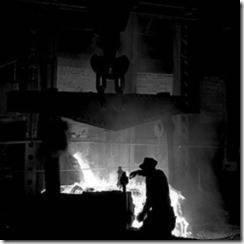 The Barton Staffing Solutions Blog from February 19 struck a chord with many readers. (See: Five Advantages Skilled Temporary Staffing Provides Over Day Labor.)
The Barton Staffing Solutions Blog from February 19 struck a chord with many readers. (See: Five Advantages Skilled Temporary Staffing Provides Over Day Labor.)
There were employees and managers that commented privately about how their firm operates. They asked not to be identified, but the points made are worth a follow-up here.
The common chord that was struck was the ethical dilemma created by firms that hire undocumented day labor in lieu of skilled temporary labor, with eligibility to legally work.
People commented about business conflicts created, and the downstream observable effects when cost is the only driver to choose temporary staff. Here’s the issue:
When a firm does not invest adequately in the people it hires, both permanent and temporary labor, it shines a spotlight on its corporate culture. It is easily visible through these downstream effects:
- Temporary employees are paid minimum wage, but are expected to perform work that demands higher-skills.
- Demanding work from untrained employees increases risk, and drives up recordable injury and accident rates.
- Accident logs are managed through incentives not to report, instead of incentives to report and improve.
- The workplace environment reflects the culture. Dirty, dangerous, and hazardous conditions are easy to identify.
- Safety, as a company core competency, is not a priority for leaders, managers, and supervisors.
Sure, many jobs are dirty, dangerous and risky. But instead of trying to get by with lesser skilled employees, pay people a fair wage, and invest in safety initiatives, training, and equipment. Making people in your organization a priority will attract better skilled people. But it’s no secret that formerly dirty industries (like automotive, aircraft manufacturing, and dozens of others) who have invested in training people, cleaning up their workplace, have driven growth in all areas as a result. The dirty production lines of the early auto industry are now replaced with near-clean-room assembly centers. That industry has driven their initiatives down through the supply chain. This shift is consistent both here, and abroad.
Not all temporary agencies focus on skilled temporary labor. Temporary staffing agencies must know how to deliver qualified skilled temporary employees, or you will need to find a new agency. If you are looking for a new agency, and your management team has made skilled employees a priority, over the lowest cost F.A.M. employees, Barton Staffing Solutions is here to help.
Putting higher-skilled people in your workplace results in better quality and increased production. These two factors drive business, which in turn, allows for growth. Hobble your team, this first driver of growth, and you put all corporate objectives at risk.
Barton Staffing Solutions works with clients interested in developing this post-industrial-age corporate culture that drives growth and business results. Our full time safety manager is available to discuss how skilled temporary employees, combined with developing a culture of safety and adequate compensation can benefit your firm. Call us today for an appointment.

